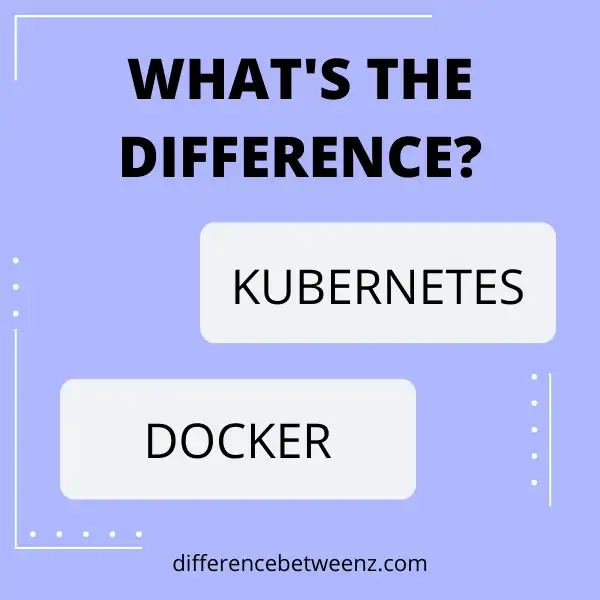Docker and Kubernetes are two of the most popular tools in the DevOps world. While they both have similar goals, there are some key differences between them. we’ll explore those differences and explain why knowing them is important for anyone working with DevOps.
What is Kubernetes?
- According to CNCF, “Kubernetes is an open-source system for automating deployment, scaling, and management of containerized applications.” In layman’s terms, Kubernetes is a tool that helps you run containers—such as those used in Docker—at scale.
- Kubernetes was originally developed by Google and released as an open source project in 2014. Since then, it has become one of the most popular container orchestration tools, with a large community of users and contributors. Kubernetes is often used in conjunction with other open source tools, such as Prometheus and Grafana, to provide end-to-end monitoring and visibility for containerized applications.
- Overall, Kubernetes is a powerful tool that can help you manage your containerized applications at scale. If you’re looking for a way to run Docker containers at scale, Kubernetes is definitely worth checking out.
What is Docker?
Docker is a tool designed to make it easier to create, deploy, and run applications by using containers. By using containers, developers can package up an application with all of the parts it needs, such as libraries and other dependencies, and ship it all out as one package. This makes it much easier to get an application up and running on another machine without having to worry about setting up all of the dependencies manually.
Docker also includes a tool called “Docker Compose” which allows developers to define a multi-container application in a single file and then run it with a simple command. This makes it easy to create complex applications that are composed of multiple services. Overall, Docker provides an easy way to package and distribute applications, making it a popular choice for developers who need to quickly get their applications up and running on multiple machines.
Difference between Kubernetes and Docker
There are a few key differences between Kubernetes and Docker.
- For one, Kubernetes is designed to manage multiple containers across multiple hosts, while Docker is designed to run a single container on a single host. This means that Kubernetes is more scalable and can support a greater number of workloads.
- Additionally, Kubernetes uses declarative configuration while Docker uses imperative configuration. This means that with Kubernetes you define what you want your system to look like, and the system will automatically adjust to meet those specifications. With Docker, you have to manually issue commands to start, stop, or modify containers.
Finally, Kubernetes is open source while Docker is proprietary software. This means that anyone can contribute to the development of Kubernetes, and there is a large community of users and developers who can help answer questions or provide support.
Conclusion
Kubernetes is an open-source platform for managing containerized applications. It was originally designed by Google and donated to the Cloud Native Computing Foundation in 2015. Kubernetes has gained a lot of popularity in recent years due to its ability to manage large-scale deployments of containers.
- Docker is a software company that develops and sells containerization technology. Docker was founded in 2013 and quickly became one of the most popular containerization technologies available.
- Kubernetes and Docker are both used for deploying and managing containers, but they have some key differences.
- Kubernetes is more scalable than Docker, and it offers better performance at larger scales. Kubernetes also has a richer feature set than Docker,


